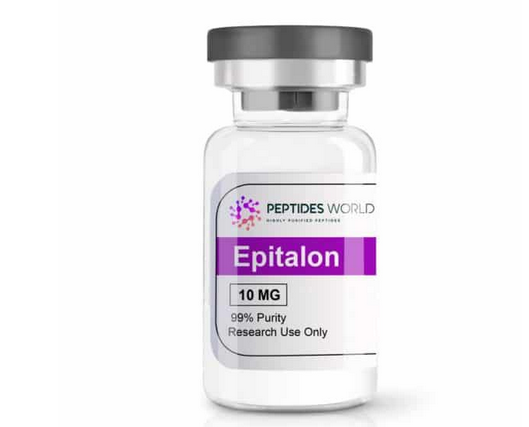
In a world where aging is inevitable, the search for ways to slow down the process and maintain a youthful appearance is a constant pursuit. One such discovery in the realm of anti-aging research is epitalon peptide. This groundbreaking peptide has been gaining attention for its potential benefits in promoting longevity and overall health. In this blog post, we will delve into the science behind epitalon peptide, its potential benefits, and how it may be able to help you turn back the hands of time.
epitalon peptide is a synthetic version of a naturally occurring peptide called epithalamin. Epithalamin is produced by the pineal gland in the brain and has been shown to regulate various physiological processes, including sleep-wake cycles and hormone production. Epitalon works by stimulating the production of telomerase, an enzyme that helps protect and repair DNA. Telomeres are protective caps at the end of chromosomes that shorten with age, leading to cell deterioration and aging. By activating telomerase, epitalon can potentially slow down this process and promote cellular regeneration.
One of the most promising benefits of epitalon peptide is its potential to extend lifespan. Studies have shown that epitalon can increase the lifespan of animals by up to 25%, which has sparked interest in its anti-aging properties for humans. In addition to extending lifespan, epitalon has also been shown to improve immune function, enhance cognitive function, and reduce oxidative stress on cells. These effects can have far-reaching implications for overall health and well-being.
Another key benefit of epitalon peptide is its ability to support hormone balance. As we age, hormone levels naturally decline, leading to a variety of symptoms such as fatigue, weight gain, and decreased libido. By stimulating the production of hormones such as melatonin and growth hormone, epitalon can help restore hormonal balance and alleviate these symptoms. This can result in increased energy levels, improved sleep quality, and enhanced physical performance.
Furthermore, epitalon peptide has been shown to have antioxidant properties that help protect cells from damage caused by free radicals. Free radicals are unstable molecules that can cause oxidative stress on cells, leading to inflammation and accelerated aging. By neutralizing these free radicals, epitalon can help prevent premature aging and promote cellular health. This antioxidant effect may also contribute to epitalon’s ability to support cardiovascular health by reducing inflammation in blood vessels.
In conclusion, epitalon peptide offers a promising avenue for those seeking to slow down the aging process and improve their overall health. Its ability to stimulate telomerase production, extend lifespan, support hormone balance, and provide antioxidant protection make it a valuable tool in the fight against aging-related decline. While more research is needed to fully understand its mechanisms of action and long-term effects in humans, early studies suggest that epitalon holds great promise as a potent anti-aging agent. Whether you’re looking to turn back the hands of time or simply improve your quality of life as you age, epitalon may be worth exploring as part of your anti-aging regimen.
Conclusion: As we continue our quest for eternal youthfulness and longevity, exploring innovative solutions like epitalon peptide could hold the key to unlocking new possibilities for healthy aging. By understanding how this remarkable peptide works on a cellular level and harnessing its potential benefits for our own well-being, we may just discover a fountain of youth within reach after all.